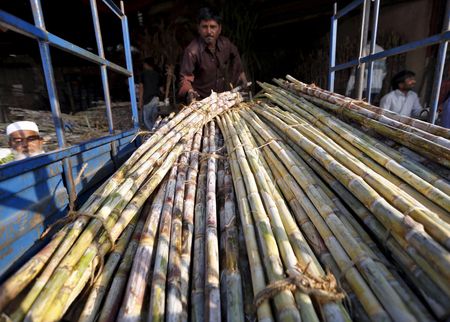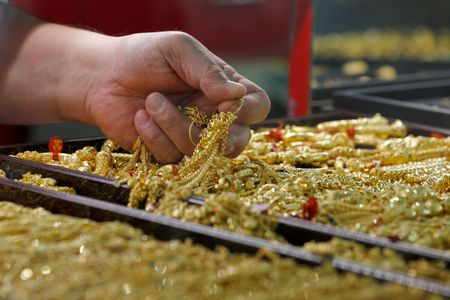By Rajendra Jadhav
MUMBAI (Reuters) – Indian traders are struggling to sign export contracts even after New Delhi allowed the export of 1 million metric tons as mills are seeking a hefty premium over London prices, which overseas buyers are unwilling to pay, four trade sources told Reuters.
The slower pace of shipments from India, the world’s second biggest sugar producer, will support global prices , which this week fell to their lowest in three years.
India on Monday allowed exports of 1 million tons of sugar during the current season to September 2025 to help mills export surplus stocks and prop up local prices.
“After exports were allowed, local prices jumped nearly 10%. Mills are now seeking hefty premiums over global prices to export their allocated quotas,” said a Mumbai-based dealer with a global trade house.
The Food Ministry has allocated mills a uniform export quota of 3.174% of their three-year average production, which they can export directly or via merchant exporters.
Traders this week contracted 20,000 tonnes of white and refined sugar for shipments in February between $490 and $510 per ton on a free-on-board (FOB) basis, or nearly $10 to $25 per ton above benchmark London futures, four dealers with trade houses said.
Before export approval, Indian prices were at a big discount to global prices, making exports profitable. However, post-approval, Indian prices surged while global prices declined, reducing the export incentive for mills, said a New Delhi-based dealer with a trade house.
“Mills need to export their allocated quota before September 2025, so they are not in a hurry to sign deals. Instead, they are waiting for global prices to rise,” the dealer said.
India, which sells sugar to Indonesia, Bangladesh and the United Arab Emirates among others, was the world’s No. 2 exporter during the five years to 2022-23, with volumes averaging 6.8 million tons annually.
Sugar mills in the northern state of Uttar Pradesh, which were allocated 274,184 tons of sugar for export, have sold around 100,000 tons of their quota to merchant exporters, dealers said.
These exporters will secure supplies from the coastal states of Maharashtra and neighbouring Karnataka as less freight is required to move sugar from mills to ports in these two states.
(Reporting by Rajendra Jadhav; Editing by Mark Potter)











